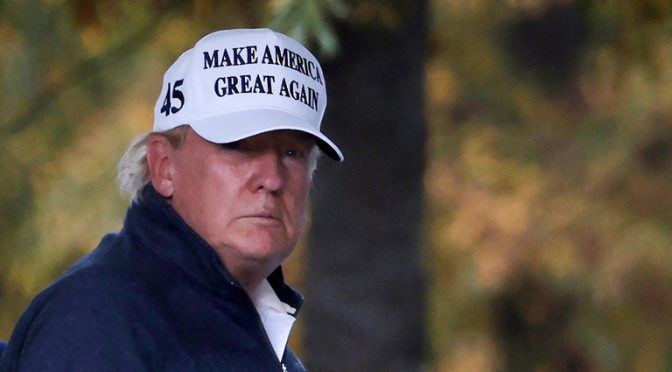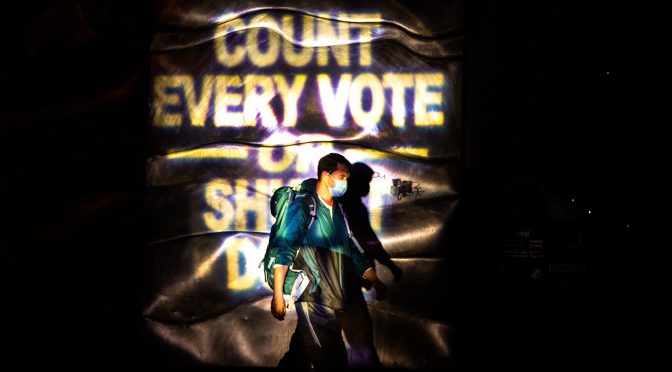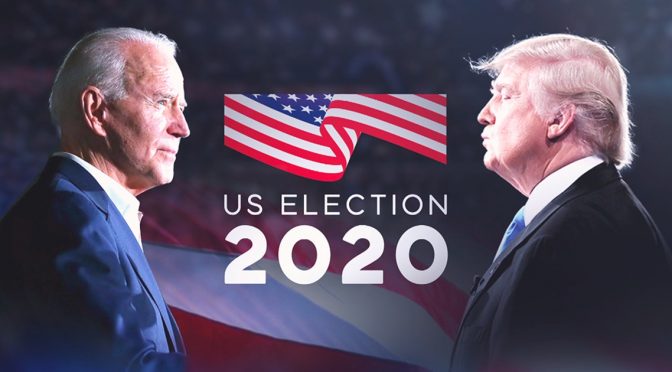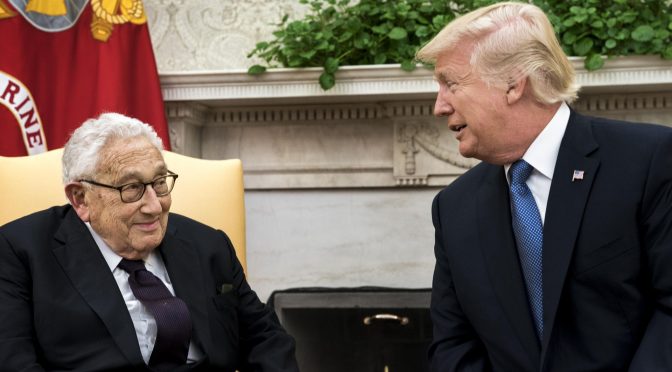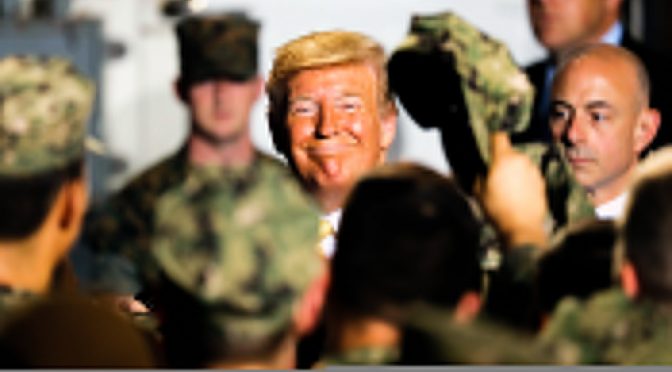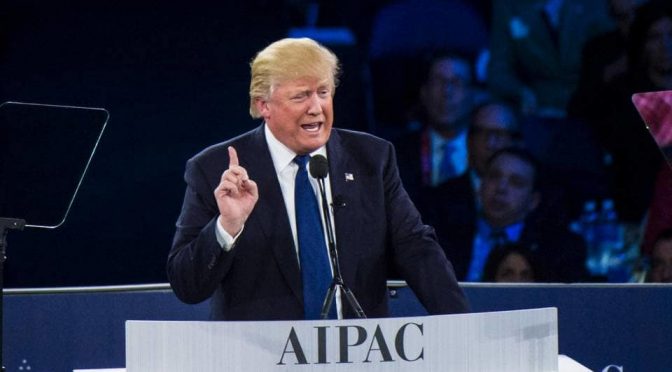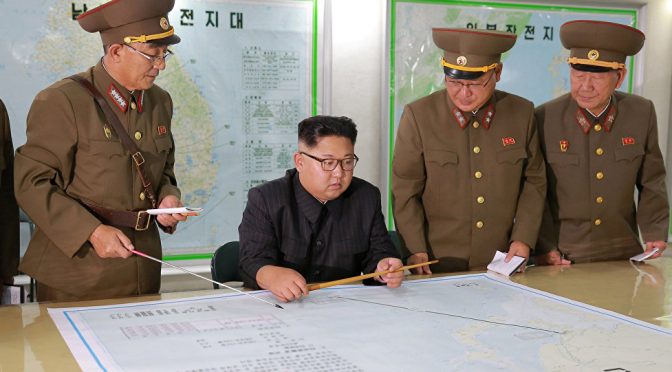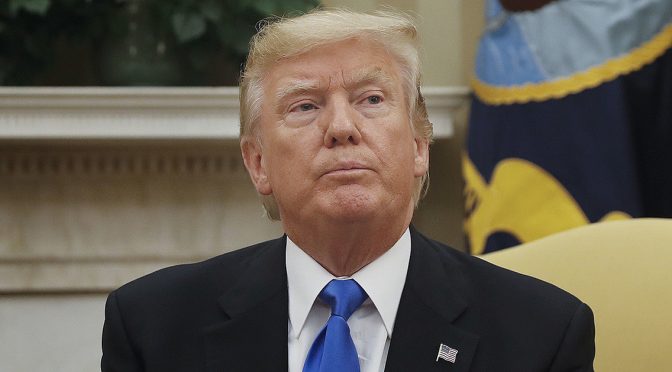President-elect Trump’s crude attempt to scare away de-dollarization is based on an illusion of Washington’s omnipotence.
Donald Trump still has it, that old magic: Long known for using social media to great – or devastating – effect, the former and incoming US president has mightily stirred the bubble again. This time the target of his ire is BRICS+ (at this point an informal but commonly used label), an association of, in essence, non-Western states that dare organize and cooperate without Washington’s permission and outside its control.
In particular, Trump has threatened that any attempt to “move away from the Dollar” will lead to massive US punishment, specifically, “100% tariffs.”
“There is no chance that the BRICS will replace the U.S. Dollar in International Trade,” the president-elect thinks he knows, and any country daring to challenge “the mighty US Dollar” – in the original over-capitalized, thundering Trumpese – “should wave goodbye to America.” Those who don’t want to fall from the good graces of the US, Trump demands, must not only abstain from abandoning the dollar but make a special commitment to not even try.
Let’s not dwell on the obvious: To be honest, who would not want to wave the US goodbye, if only we could? And for something that has “no chance” of happening, the idea of replacing or abandoning the dollar is getting Trump pretty worked up. Why so prickly about what he says is a non-starter anyhow?
Part of the answer – but only part – is psychological. Especially during America’s ongoing decline, its late-imperial elites, whether Democratic or Republican, are bound to be hyper-sensitive about anything that looks like defiance. Because they are still cultivating a delusion that they are “indispensable” and that we, the other almost 8 billion people on this planet outside the US, must accept their “leadership.”
But that complex explains only so much. Because what is special about BRICS is not what it has been trying to do but how successful it is, posing a challenge in the real world of power and geopolitics. Emerging barely two decades ago, just this year BRICS has doubled in size, and further expansion is certain. While it is a complex and evolving organization, one of its prominent concerns has been the escalating American abuse of the dollar as a geopolitical weapon. Hence, BRICS has been a platform for initiatives and discussions under the catch-all label “de-dollarization.” Indeed, according to Bloomberg, members of BRICS have been “leading the global debate over dollar exposure.”
That is what has triggered Trump, and not for the first time. Months before he won his comeback election, Bloombergreported that he and his advisers were thinking about and issuing threats against de-dollarization. In principle, it is not surprising that they are concerned. What a French finance minister once called “the exorbitant privilege” of the global dollar domination that emerged out of World War II has allowed the US to be profligate with debt. The basis of this anomaly is that, currently, almost 60% of all central bank reserves in the world are held in dollars, and nearly 90% of all foreign-exchange transactions are conducted in the US currency.
As a result, Washington has also been able to avail itself of what The Economist recently labelled “an enormous lever of power” by surveilling and obstructing global financial flows as well as imposing outright almost-confiscation (euphemized as “freezing”), as has happened to almost 300 billion dollars of Russia’s national reserves. In short, the dollar-as-it-still-is allows the US to live beyond its means at the cost of other nations and to make their lives miserable by the financial equivalent of blackmail, strangulation and, quite simply, robbery.
What is special this time is Trump’s hyperbolic tone and his explicit and public singling out of BRICS.
He has leveled his threat at an association that brings together two global powers, Russia and China, as well as several regional heavyweights, such as Iran and Brazil. It already represents at least 45% of the world’s population, and, in terms of the global economy, BRICS is a rising force that has already overtaken the G7, the declining club of Western/Global North rich countries. According to geopolitical analyst Kishore Mahbubani, at the end of the Cold War, more than a third of a century ago, the combined GDP of the G7 was the equivalent of 66% of global GDP. While BRICS did not exist yet, its future members were far from even getting close to matching the G7. By now, however, the G7 share stands at 45% and that of BRICS+ at 24%. That is, as long as you stick to the crude metric of nominal GDP. Once you adjust, more realistically, for purchasing power, the BRICS+ economies – with 34% of global GDP – have already beaten the G7’s 29%.
Trump’s tweet, in other words, looks as if he were spoiling for an economic fight against two great powers – one of which is in the process of defeating the West in Ukraine – and a grouping of states that represents almost half of humanity and is powerful already while growing dynamically. What does Trump’s threat actually mean in that context?
To state the obvious, the president-elect’s sally squarely stands in the bipartisan US tradition of breathtakingly arrogant over-reach. Between sovereign states, to threaten other countries for potentially not using your currency, including in trades amongst themselves, is absurd. To demand that they promise not to even try makes you look like Tony Soprano on ecstasy, a weird mix between a bully and a crank.
But then, don’t blame Trump personally. This is not merely about him being his uncouth self. It’s a whole political culture – for want of a better term – speaking. The extraordinarily boorish pestering comes from the one, “exceptional” state on Earth that has got used to the idea that it can interfere in anyone’s business all the time and wherever it pleases. Be it by “secondary sanctions,” that is economic warfare designed to interfere with commercial relationships the US is not even involved in. Or the judicial insanity weaponized against Australian citizen and journalist Julian Assange, who was persecuted outside the US as if he had to obey American laws, while explicitly not granted even the meager protections that those same laws offer, at least formally, to Americans.
No surprise there, really. Trump may think he’s very different from the US establishment, but he appears steeped in its self-damaging and shortsighted routine hubris. Yet does his demand even make sense on its own, inappropriate terms? No, not at all, for three reasons.
First, Trump seems to underestimate the sophistication of current de-dollarization discussions centered on BRICS. They are not aiming at the introduction of a new currency akin to the dollar or euro. Indeed, Russia’s President Vladimir Putin has been explicit about the fact that the euro can only serve as an example of how not to do things. Instead, Russia aims at a more intelligent approach by setting up an international payments system, clearinghouse-style, taking full advantage of cutting-edge digitalization. China, importantly, agrees that it is modern technology that will allow for a gradual recasting of payments around the globe. Whatever will emerge from these initiatives, it will simply be too complex and smart to be amenable to the ham-fisted repression that Trump is trying to threaten.
Secondly, Trump’s tweet is self-defeating because the “100% tariffs” he waves about like a caveman cudgel are simply not believable as a threat – except, that is, the president-elect is prepared to inflict massive pain on the American economy and its consumers. Even his other tariff threats, against China, Canada, Mexico, and the EU, especially in conjunction with his unrealistic promises of tax cuts, imply rising prices and inflation in the US. And inflation played an important role in the defeat of the Democrats.
Finally, Trump’s approach is also self-defeating because it offers further incentives to de-dollarize, as even some Western experts acknowledge. The president-elect has illustrated exactly the kind of brutal and dumb overreach and, to put it simply, flagrant disrespect of other countries’ financial sovereignty that has antagonized the world in the first place. This kind of backfiring is precisely what the Russian presidency’s spokesman Dmitry Peskov has just warned the US about.
But perhaps, to be fair to Trump, there is another way to understand his threats against reducing dollar dependency: namely as a perversely misguided attempt to repair the enormous damage done by US economic warfare under previous administrations, including those of his two Democratic predecessors, Barack Obama and Joe Biden, and his own as well.
Most of that damage was done in Washington’s gargantuan yet failing campaign against Russia. Before exiting the White House in 2017, Obama had already increased sanctions against Russia “substantially.” Subsequently, there was a relative lull during the first Trump administration. Where Obama had added 458 sanction targets, Trump still added more – 273 – but at a “much lower rate”: In the US, moderation is doing the same bad thing but more slowly. Congress, meanwhile, made sure that the president would have found it hard to reduce sanctions, even if he had wanted to, by passing the Countering America’s Adversaries Through Sanctions Act (CAATSA).
During Biden’s rule after 2021, then, US sanctions against Russia went from bad to worse: After the 2022 escalation, Biden boasted that his sanctions were “the toughest ever imposed on a major economy.” And, as before, the US was leading an international assault, including the EU and other American clients, such as Canada and Japan. By February of 2024, together they had ramped up the total of sanctions launched with the explicit intent to destroy Russia economically to 16,500.
This historically unprecedented economic warfare attack has not only failed but backfired, as is well known. Western speculators, especially in the US, have enriched themselves (again) through a number of perverse side effects – or were they main effects maybe? – as a recent Jacobin article shows. The inflation backlash triggered may well have contributed to the Democrats smashing defeat in the presidential elections, as noted before. The poor of the world have certainly suffered. And so have major economies as well, especially in a EU-NATO Europe, whose elites have consistently sacrificed the interests and well-being of their own countries, as Russian president Putin has repeatedly and correctly pointed out. So bad has the fall-out been that even the British Telegraph, as NATO-bellicist as can be, has long noticed.
Trump, facing this total fiasco, you could say, is now desperately attempting to contain one aspect of its continuing fall-out, namely the drive toward de-dollarization. But the tragedy – or irony – is that he is trying to do so by applying even more of the same stupid highhandedness that got us into this mess in the first place. Instead of doing what is obviously needed – drop sanctions and economic warfare in general, including via weaponizing the dollar – he is adding more crude threats.
Ultimately, it seems, Trump not only has but obstinately cultivates the same mental blind spot as virtually everyone else in the current US elite: He implicitly believes that American power has no limits, and certainly none set by the power of other states. Trump does believe that Washington can make mistakes, because otherwise he could not claim to correct them and “make America great again.” But he cannot grasp that repairing America’s place in the world would take genuine cooperation with others outside the US. Instead, he is betting on yet more bullying. Good luck with that.


